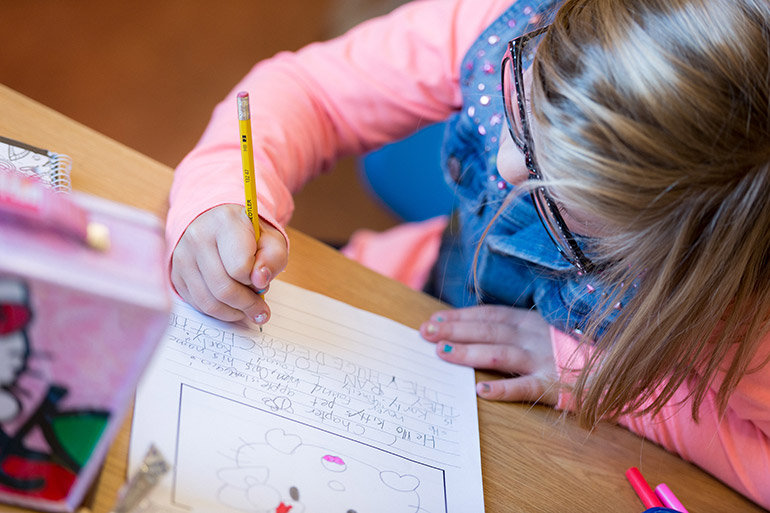
UBCO School of Education experts provide tips to help parents cope and children thrive.
Experts offer guidelines to support children’s learning during school closures
With schools closed indefinitely across BC, parents and children are adapting to a new way of learning. While there are plenty of online resources available, including those provided by school districts and the province, experts with UBC Okanagan’s School of Education offer basic tips for parents and caregivers.
Listen for wonderings, says Margaret Macintyre Latta, director of the Okanagan School of Education
“As you’re completing day-to-day tasks with your child such as cooking or cleaning, or even just enjoying time together by walking or examining the night sky, listen for their wonderings. These wonderings can offer many lines of inquiry that you can further by offering your own wonderings.
Seek resources together, investigate ways to learn more and find new questions. When learning comes from the child’s own questions, then learning does not feel forced and can find direction on its own. And, the connections bring science, math, art and more together. Rather than thinking about learning as separate from living, consider that human beings are fundamentally meaning-makers—learning is elemental to being human.”
Stay active, says Stephen Berg, associate professor
“Right now, technology has really taken over everyone’s lives and justifiably so. Children and youth are now tasked with being online for hours. This sedentary time needs to be balanced out with physical activity. When time allows, move away from a screen. Stretch, do some calisthenics and go outside. Go for a walk, run or bike ride. Just make sure you abide by physical distancing and obey all park and playground closures where applicable.”
Work with the situation you’re in—and not against it, says Christopher Martin, associate professor
“I have two children at home ages five and eight, and I’ve had to learn to manage my stress about them ‘covering’ enough material and not ‘falling behind.’ These are totally understandable feelings, but they misunderstand a little about what education involves and how it works.
I try to take a step back and look at the bigger picture of my children’s educational journey. What is the key educational goal I want them to achieve, and what can I do as a parent to bring that about?
For example, one key aim could be critical thinking. All the worksheets in the world will not help my children learn to critically think; but something as simple as talking about what they are interested in, and getting them to think about different points of view can encourage critical thinking.
Children are very observant, and what they see in us will be a more powerful teacher than any YouTube video. You do not need to develop an entire educational program. Reading to your children—and enjoying the time you have to read to them—can make a huge difference.”
Learning happens in spaces and places between us, says Sabre Cherkowski, director of graduate programs
“There are the physical spaces where students and teachers gather, and there are also the emotional spaces between us—our relationships. These spaces can provide a sense of acceptance, belonging and an opportunity to see how our contributions matter and make a difference. Parents and guardians can think of these three things each time they set up learning for, and with, their children.”
Children respond to structure and routine and they can find that comforting, especially when the day is mapped out for them, says John-Tyler Binfet, Associate Professor
“As parents and guardians work to establish structure and routine, they must recognize children might initially require ample support that sees them actively implicated in the learning process. As children navigate their way and become familiar with expectations, they will develop a sense of independence and parents and guardians can then step back their support, pending the needs of the child.
‘Chunking’ or breaking tasks into small manageable pieces is useful for enticing reluctant learners and ‘co-learning’ alongside reluctant learners can help to engage children in learning tasks.
Parents and guardians can find comfort in knowing that they don’t need to have all the answers when it comes to supporting their children in online learning. As they tackle assignments, help activate learning by asking questions that predict—what’s likely to happen next? — connect—how is this similar to what you’ve studied before? — or extend—what could someone do with this information?”
Beyond all else, Binfet and his School of Education colleagues, remind all parents and caregivers to add an extra ounce of kindness into their days while they are at home with their children
“These are trying times for some,” says Binfet. “But my research has shown that kindness can go a long way during your day-to-day activities. We feel better when we’re kind to others and we make others feel better too.”